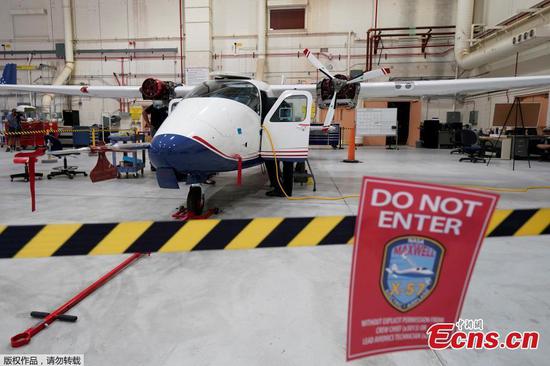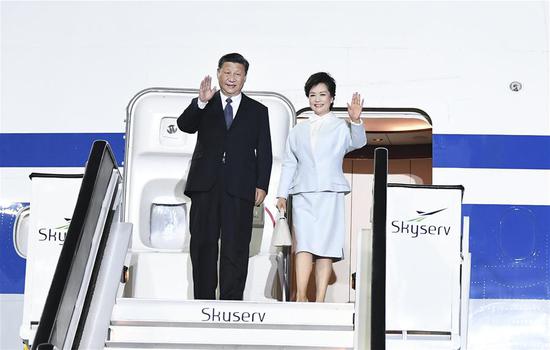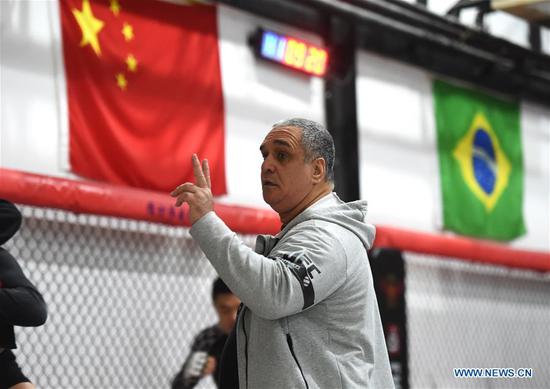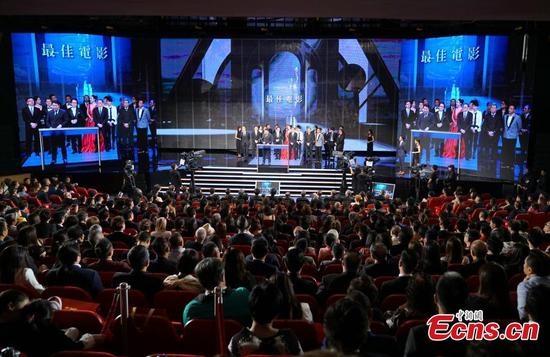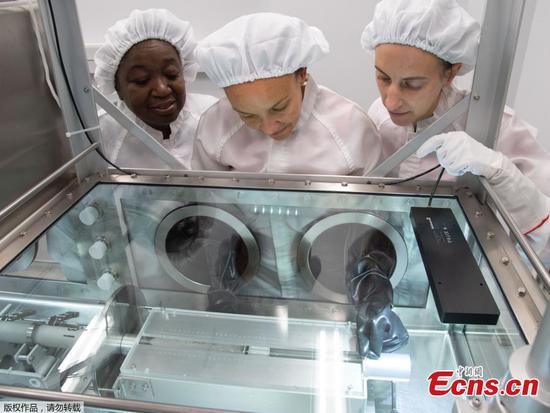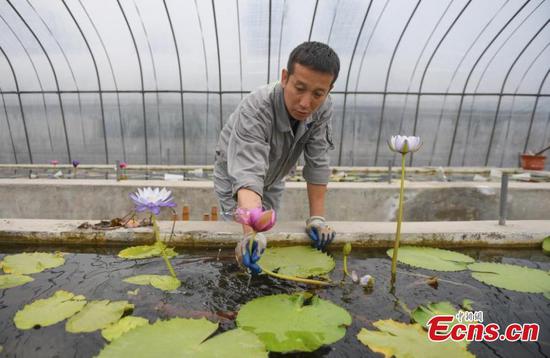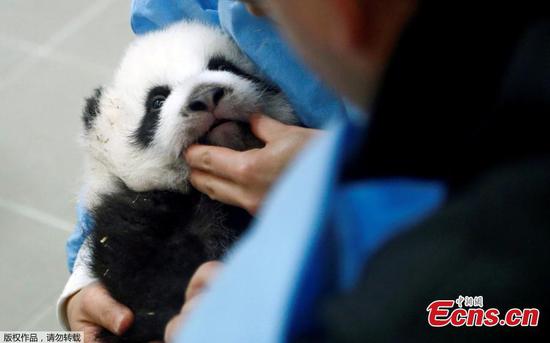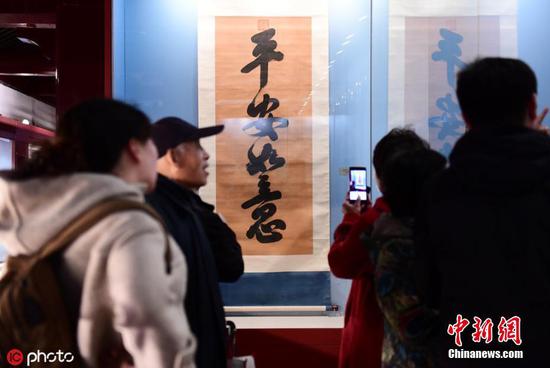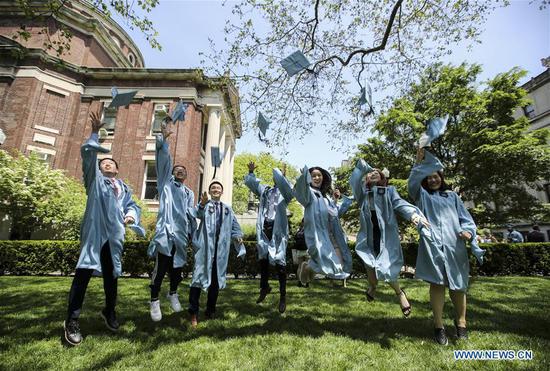
Graduate students from China pose for photos on campus after the Columbia University Commencement ceremony in New York, the United States, May 22, 2019. The Columbia University Commencement ceremony of the 265th academic year took place on Wednesday. More than 17,000 students from Columbia's 18 schools and affiliates graduated this year. (Xinhua/Wang Ying)
Remarks by Trump, ambassador follow concerns about spate of visa rejections
China hopes the United States will put its words into action, be sincerely welcoming to Chinese students and create more favorable conditions for bilateral education cooperation and people-to-people exchanges, Foreign Ministry spokesman Geng Shuang said on Monday.
Student exchanges between the two nations have long promoted communication and mutual understanding, Geng told a daily news briefing.
Geng's remarks came after Terry Branstad, the U.S. ambassador to China, published a Chinese article in China Youth Daily on Monday, expressing that the U.S. welcomes Chinese students to its universities.
The U.S. has made no change to its student visa policies. Around 360,000 Chinese students studied at U.S. universities last year, the highest among all nationalities, which clearly signals that U.S. higher education is open to Chinese students, the ambassador said.
He noted that it is difficult to build bridges between the two cultures, but it is worth the extra effort. Those who choose to study in the U.S. and integrate into its society will broaden their career prospects, contribute to China's sustainable development and reinforce China-U.S. relations, he said.
When meeting Vice-Premier Liu He last month, U.S. President Donald Trump said the U.S. is not going to "make it tough" for Chinese students, who will be treated just like everybody else.
"We want all the people that want to come over from China. We have the greatest university system in the world, and we're going to keep it that way," he said.
The remarks made by Trump and Branstad were undoubtedly positive and served as an alleviation for past visa policies adopted by the U.S., China Youth Daily said in an editorial on Monday.
It bears important significance in relieving tensions between the two countries in certain fields, and China welcomes it, the newspaper said.
"Chinese people believe in keeping one's word, and we hope the U.S. will be welcoming to Chinese students," the editorial said.
The U.S. embassy in China could not be reached for comment on Monday.
In June, the Ministry of Education issued a warning about the risks of studying in the U.S., citing a soaring number of visa rejections.
According to the China Scholarship Council, 182 government-funded students and scholars failed to get into the U.S. because of visa restrictions from January to March this year, 13.5 percent of the applicants.
Ran Wei, chief expert for overseas study at New Channel International Education Group, a consultancy for overseas studies, said it is only rational for policy makers to set no hurdles on education cooperation, which is beneficial for all people.
"It is encouraging to hear that the U.S. will not discriminate against Chinese students in issuing visas, and we hope more Chinese students can go to U.S. universities to study," he said.
Living in a different country for an extended period can help students learn its culture, make friends with local people and understand their way of thinking to avoid any unnecessary misunderstandings and conflict, Ran said.
Feng Jianguo, a doctoral candidate at the College of Mechanical Engineering of Tongji University in Shanghai, said he has paid close attention to news about U.S. visa restrictions to students majoring in STEM courses, as he plans to apply for an exchange program to a U.S. university next year.
"I'm glad to hear that the U.S. continues to welcome Chinese students," Feng said.
"As more Chinese students go to U.S. universities to study, their academic research will continue to make contributions to the entire world and should not be restricted."


















